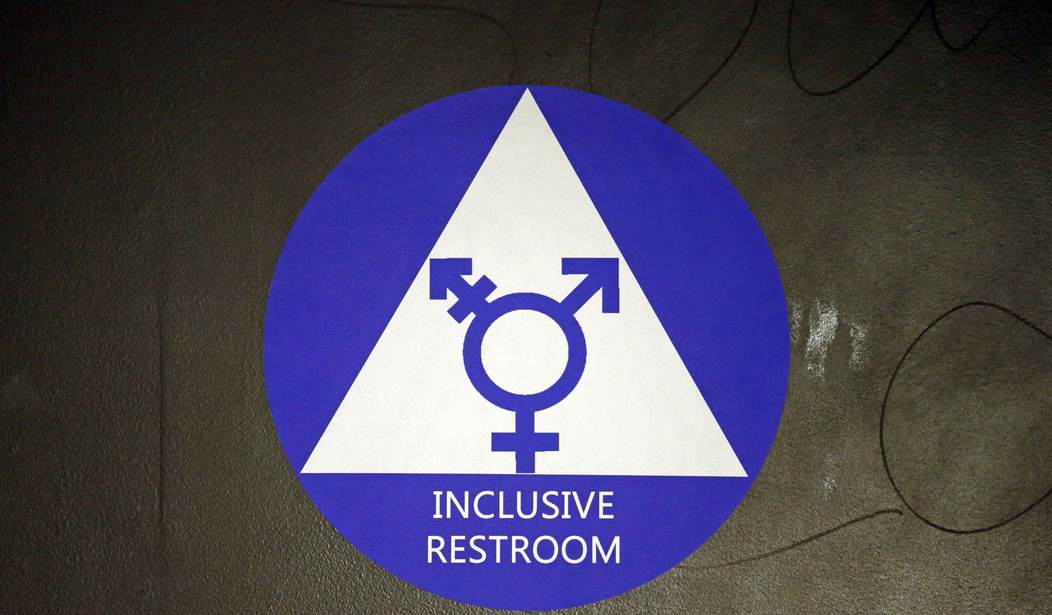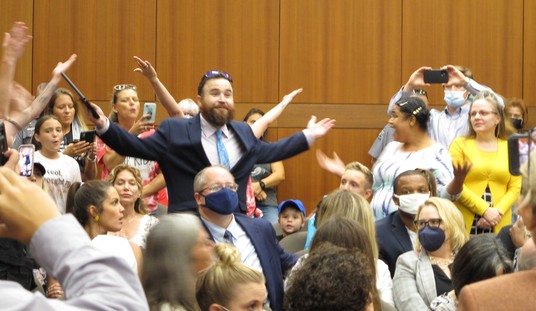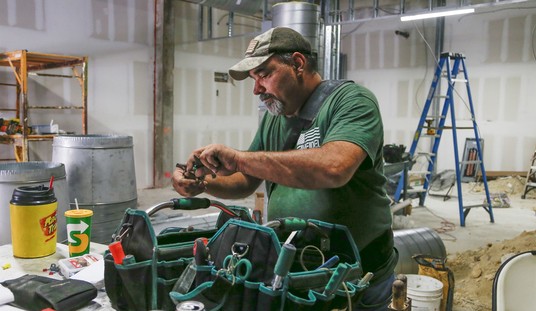California State University, Northridge wants its attendees to understand the importance of pronouns.
Therefore, via its University Student Union’s Pride Center, the school has dedicated a webpage to “Why Pronouns Matter for Everyone.”
“Jump-start the learning curve,” it says, “by educating yourself.”
CSUN tells cisgender students not to make their peers do work that’s on them:
Don’t make your Transgender and Nonbinary peers do all the work in pronoun education. You can jump-start the overall learning curve by educating yourself and boosting our reach with others around you.
Awareness is key:
Without realizing it, we use pronouns all the time. We use these pronouns in speech and writing to take the place of people’s name and many other proper nouns. One example lies in self-references: Every time you use ‘my’ or ‘mine’ you’re using a pronoun!
Fingers = off triggers:
Often, when speaking of someone in the third person, these pronouns have a gender implied (think he/she). These associations with gender are where our language can become triggering or divisive for folx whose gender expression doesn’t match their gender identity. Using someone’s correct pronouns is one of the simplest ways to show your respect for their identity.
As for gender identity and gender expression being at odds — if I accurately understand — that refers to, for instance, a biological male who wears a dress yet doesn’t identify as a woman.
Perhaps that person considers themself neither/nor — “noun-self” pronouns such as “bunself” or “kittenself” may apply.
The school warns of “how divisive pronoun assumptions can be for many individuals.”
Let’s break down how this can be so instantly harmful.
- You can’t know what someone’s pronouns are by looking at them. Often, we make assumptions about the gender and pronouns of another person based on their appearance or name. These assumptions aren’t always correct.
- The act of assuming (even if correct) sends a potentially harmful message that people must look a certain way to demonstrate the gender that they are or are not.
- When someone is referred to with the wrong pronoun, it can make the individual feel disrespected, invalidated, dismissed, alienated, or hurt. This can determine within the first few minutes if they will feel respected at CSUN or not.
- Sharing our pronouns and correctly using other people’s pronouns sets a tone of inclusion. It can truly make all the difference, especially for new community members who may feel particularly vulnerable in a new environment.
- Many people may be learning about pronouns for the first time, so this will be a learning opportunity for the CSUN community. You will be setting an example for your peers.
A list of pronouns is provided, with the note that “there are no ‘male/female,’ ‘man/woman’ or ‘feminine/masculine’ pronouns. All pronouns can be used for any gender.”
Students are offered “Ey,” “He,” “Per,” “She,” “TheyThem,” “Ve,” “Xe” and “Ze” for consideration.
Example sentences:
- Ey loves emself.
- He loves himself.
- Per loves perself.
- She loves herself.
- They trust themself.
- Ve loves verself.
- Xe loves xemself.
- Ze trusts hirself.
- Ze trusts zirself.
Some folx don’t allow you to use pronouns for them:
- Taylor trusts Taylor’s self.
And to be clear, you shouldn’t feel fear:
Don’t panic over pronunciation! While above are some common ways to pronounce these pronouns, there are many variations, so it is best to ask how the individual pronounces them.
Perhaps the most curious part of the instruction is that, since pronouns are normally used away from those to whom they refer, the people will never know what you said.
Nonetheless, CSUN’s FAQs section addresses the question “What if I make a mistake?”
It happens. We all make mistakes! We recommend using R.A.M. (Relax, Apologize, Move on). The trans community often shoulder the burden of alleviating embarrassment and hurt feelings of cisgender individuals. Don’t excessively apologize or make it about yourself or how hard it is for you to learn new pronouns. Simply apologize, do better, and use the correct pronoun the next time.
If everyone has their own pronoun combinations, communication-wise, we’re on course to become the most complex society in human history — please see my example of our recommended new normal here.
But so goes progress.
So if you’re attending CSUN, set aside some time — there’s a world of work to do.
-ALEX
See more content from me:
Excellence in Equity: California Eyes Obliterating ‘Bias’ by Getting Rid of Grades
Georgia Puts the Kibosh on Universities’ Anti-Liberty ‘Free Speech Zones’
Harvard Apologizes for Slavery, Offers $100 Million to Make It Better
Find all my RedState work here.
Thank you for reading! Please sound off in the Comments section below.













Join the conversation as a VIP Member